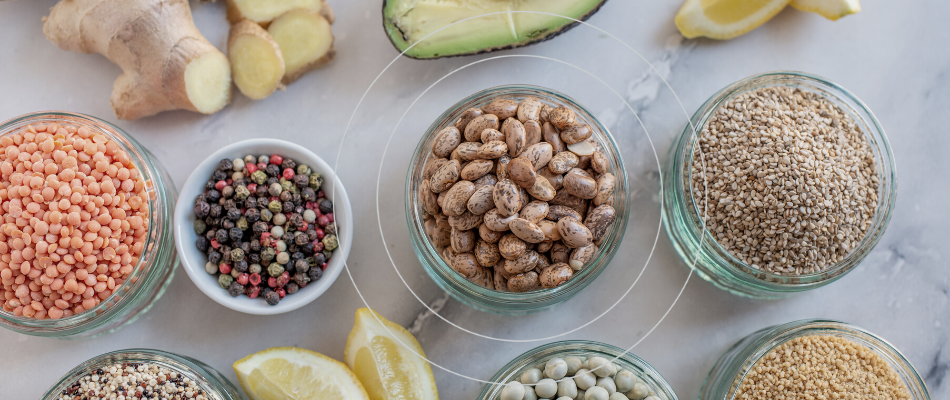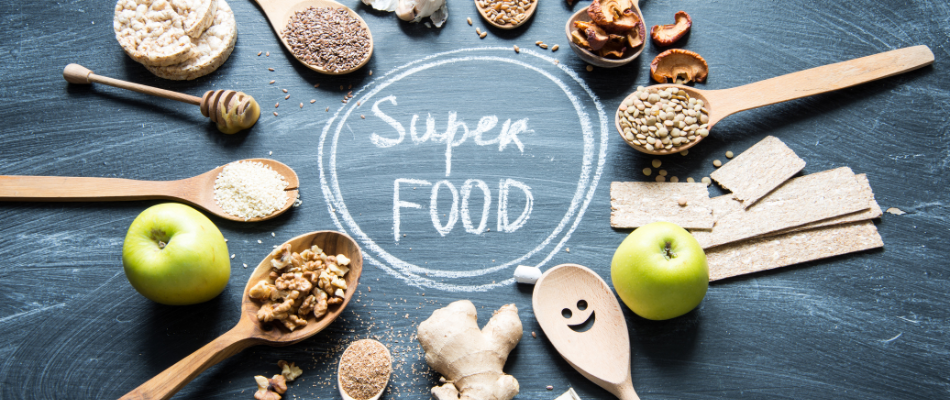Superfoods, an intelligent marketing ploy, coined to get the consumer consuming (in more ways than one). But what are superfoods and what is the hype about?
Ultimately, some foods are labelled as ‘super’ because they are nutrient-rich food – food that could ‘positively affect your health’. Remember, a combination of a healthy diet is what will have a positive effect on your health – not overeating one specific type of food.
With that said, let us have a look at what is being coined as a superfood and why these are valuable to add to your diet for optimal health.
Dark leafy greens
Dark leafy greens refer to dark green vegetables – like kale, spinach, Swiss chard and turnip greens. These veggies are rich in zinc, calcium, iron, magnesium, vitamin C and fibre. It further also includes anti-inflammatory compounds which are always good to include in your diet. These veggies are often excluded because of their ‘bitter’ taste. Include these in salads (nice and fresh) or stir-fries with other great veggies.
Berries
Berries are powerful. They are rich in vitamins, minerals, fibre and antioxidants. When referring to berries we talk about raspberries, strawberries, blueberries, blackberries and cranberries.
Green tea
Green tea is antioxidant-rich. Its health benefits have been known in China for many years for its medicinal properties.
Eggs
We have discussed eggs in many nutrition articles before as well as the negative press it received in the past. Eggs however remain a healthy protein, rich in Vitamin B and A, iron, phosphorus, selenium and choline. Eggs increase ‘good’ cholesterol (HDL) in some people and recent research indicates that there is no increase in heart disease or diabetes risk if an adult eats up to 6-12 eggs per week.
Legumes
Legumes are filled with nutrients – various minerals, protein, and fibre and are a rich source of B vitamins. Legumes include beans, lentils, peas and peanuts.
Nuts and seeds
Considered a healthy fat, nuts and seeds are rich in fibre and packed with anti-inflammatory and antioxidant properties. Commonly included are the nut family (almonds, pistachios, walnuts, macadamia, pecan and Brazilian nuts). Seeds include sunflower, pumpkin, chai, hemp and flax seeds.
Yoghurt and Kefir
We are all familiar with yoghurt, but for those unfamiliar with the word – Kefir is a fermented beverage. Both yoghurt and kefir contain protein, calcium, B vitamins, potassium and probiotics. Non-dairy alternatives are made from coconut and rice milk, so people with lactose intolerance can also benefit from fermented, probiotic-rich foods.
Garlic
Garlic is rich in manganese, vitamin C, B6, fibre and selenium. It has also been used for medicinal benefits for many years (and no, it has nothing to do with warding off vampires). Research shows that garlic could reduce cholesterol and blood pressure and could further support immune function.
Olive oil
Olive oil is also labelled as a healthy fat as it is a natural oil extracted from the fruit of olive trees. It contains antioxidants, vitamins E and K and protects against cellular damage from oxidative stress.
Salmon
Salmon is a nutritious fish – with healthy fats (Omega 3), protein-rich, potassium, selenium and vitamin B. A drawback of eating seafood however is the increase in environmental pollutants.
Avocado
Avocado is a nutritious fruit which has many nutrients like fibre, vitamins, minerals and healthy fats.
Mushrooms
The nutritional value of mushroom types varies but mushrooms contain Vitamin A, potassium, fibre and antioxidants.
Seaweed
Seaweed is very rich in Vitamin K, iodine, folate and fibre. These sea vegetables are a unique source of bioactive compounds which have antioxidant effects.
Including ‘superfoods’ in your diet is important as some of these foods are the only source of particular nutrients. However, clearly, from the list above, these foods should be added to your daily intake – they cannot be all you eat. Good health is about being smart about what adds the most value to your daily food intake – combining healthy choices across all food groups. Ultimately, superfoods have been highlighted for their possible effect in reducing the risk of disease such as high blood pressure, heart disease, diabetes and certain cancers.
In summary, it makes sense to include nutrient-dense food in your diet. These foods will optimise the nutrition you include in your diet without ‘breaking the calorie bank’.
Eat to stay healthy! Stay focussed on your health and make choices which you will benefit from today and for the rest of your life.







